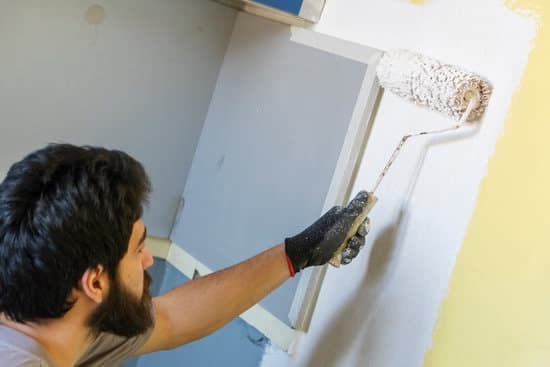When planning to make improvements to your home, one important factor to consider is whether you need a home permit for the project. Understanding the necessity of a home permit is crucial in ensuring legal compliance and safety. This article will explore the importance of home permits for improvements and provide valuable insights into why obtaining a permit is essential.
Home permits are required for various types of improvements in order to ensure that they comply with building codes and regulations. Without obtaining the necessary permits, homeowners may face legal repercussions and safety hazards. It is important to understand the implications of making improvements without a permit, as this can have serious consequences.
In addition to legal compliance, home permits help enforce safety regulations and standards. By obtaining a permit for home improvements, homeowners can ensure that the work is done in a safe and compliant manner. This section will delve into the specific safety regulations enforced through the home permit process and how they contribute to maintaining a secure living environment.
Understanding Home Permits
What Is a Home Permit and Why Is It Required?
A home permit, also known as a building permit, is an official approval from the local government that allows homeowners to make improvements or alterations to their property. This permit is typically required for any construction, renovation, or remodeling project that involves structural changes or alterations to the electrical, plumbing, or mechanical systems of a home.
The purpose of a home permit is to ensure that all improvements are made in compliance with building codes and regulations, and to guarantee the safety and structural integrity of the property.
Obtaining a home permit is crucial because it ensures that the improvements made to a home meet certain standards for safety and quality. Without a permit, there is no oversight from local authorities to verify that the work being done on the property is up to code.
This can lead to potential safety hazards and legal implications down the line. That’s why do I need a home permit for improvements – it provides protection for both homeowners and future occupants of the property.
The Different Types of Home Permits
There are various types of home permits that are required for specific improvements or alterations. These may include building permits for structural changes, electrical permits for wiring upgrades or installations, plumbing permits for changes to water supply or drainage systems, and mechanical permits for heating, ventilation, and air conditioning (HVAC) upgrades. Each type of permit serves the purpose of ensuring that specific improvements are executed in compliance with established codes and regulations.
It’s important for homeowners to understand which types of permits are necessary for their particular improvement project. Failing to obtain the appropriate permits can result in costly penalties and additional expenses to rectify any non-compliant work.
Additionally, without proper documentation from obtaining these permits, it can lead to complications when selling or refinancing the property in the future. Therefore, understanding the different types of home permits available will help homeowners navigate through the necessary steps before starting any improvement projects on their property.
Legal Compliance
When it comes to making improvements to your home, obtaining a home permit is not just a formality – it is a legal requirement. Home permits are essential for ensuring that any modifications or additions to a property comply with local building codes and regulations. This section will delve into the legal implications of making improvements without a home permit, as well as the potential consequences of not obtaining one.
Implications of Making Improvements Without a Home Permit
Making improvements to your home without obtaining the necessary permits can have serious legal consequences. If the local authorities discover that you have made unpermitted improvements, you may be subject to fines, penalties, and even having to undo the work you have completed. Additionally, unpermitted improvements can create issues when selling your property in the future, as potential buyers may be wary of purchasing a home with undocumented modifications.
Potential Consequences of Not Obtaining a Permit
The potential consequences of not obtaining a permit for home improvements extend beyond legal repercussions. Without proper documentation and oversight, unpermitted modifications could pose safety risks for occupants and neighboring properties. In the event of an accident or damage caused by unpermitted work, homeowners may also face liability issues that could result in significant financial burdens. Therefore, complying with the legal requirements for obtaining a home permit is crucial for protecting both property owners and their communities.
It’s important to understand that obtaining a home permit for improvements is not just about following rules – it’s about ensuring the safety and integrity of your property while complying with local laws and regulations. Being aware of these legal implications underscores why securing a home permit before making improvements is an essential aspect of responsible homeownership.
Safety Regulations
When it comes to making improvements to your home, safety should always be a top priority. This is why obtaining a home permit for improvements is crucial. Home permits are not just about compliance with local regulations, but they also play a significant role in ensuring that the improvements are made in a safe and compliant manner.
One of the key reasons why you need a home permit for improvements is to adhere to safety regulations. These regulations are put in place to protect homeowners and their properties from potential hazards. By obtaining a permit, homeowners can ensure that the improvements are being carried out in accordance with these safety regulations, ultimately creating a safer living environment for themselves and their families.
In addition to ensuring safety during the improvement process, having a home permit can also provide peace of mind for homeowners. Knowing that the improvements have been approved and comply with safety regulations can alleviate any concerns about potential risks or hazards associated with the project.
| Reasons for Obtaining Home Permits | Key Points |
|---|---|
| Adherence to Safety Regulations | Ensures that improvements are made in compliance with safety standards |
| Peace of Mind | Knowing that approved improvements comply with safety regulations alleviates concerns about potential risks or hazards. |
Types of Home Improvements Requiring Permits
Making improvements to your home is an exciting project, but it’s important to understand that certain types of improvements require a home permit. This is because obtaining a permit ensures that the work being done meets legal and safety standards. Without a permit, you may face consequences such as fines or having to redo the work. Here are some key reasons why you need a home permit for improvements:
1. Legal Compliance: One of the main reasons for obtaining a home permit for improvements is to comply with local laws and regulations. Building codes and zoning ordinances vary by location, and failing to obtain the necessary permits can result in legal repercussions.
2. Safety Regulations: Home permits also ensure that improvements are made in a safe and compliant manner. This is particularly important for structural changes or electrical and plumbing work, as these can have serious safety implications if not done properly.
3. Property Value: Having a home permit for improvements can ultimately add value to your property. When potential buyers see that improvements were made with proper permits, it gives them peace of mind knowing that the work meets legal and safety standards.
In summary, obtaining a home permit for improvements is crucial for legal compliance, safety regulations, and adding value to your property. It’s important to understand the types of home improvements that require permits in order to avoid potential consequences in the future.
The Permit Application Process
The process of obtaining a home permit for improvements can seem daunting, but it is an essential step in ensuring that any changes made to a property comply with legal and safety standards. So, why do I need a home permit for improvements?
A home permit is required by local governments to regulate the construction, alteration, or demolition of structures. It helps ensure that the work being done meets safety and zoning requirements, and also allows the municipality to assess property taxes accurately.
To start the permit application process, homeowners will need to gather specific details about the planned improvement, such as the type of work being done, the materials being used, and the estimated cost of the project. This information is crucial for determining which type of permit is required and how much it will cost. Once this information is gathered, homeowners will then need to fill out an application form provided by their local building department.
After submitting the application, there may be a waiting period while it is reviewed and approved. In some cases, homeowners may be required to make modifications to their plans before a permit is issued.
Once approved, it’s important for homeowners to keep a copy of their permit on-site throughout the construction process as inspectors may request to see it at various stages. As daunting as it may seem initially, going through this process ensures that improvements are made in compliance with regulations and will ultimately add value to the property.
| Home Improvement Type | Example |
|---|---|
| Structural Changes | Building an addition or removing load-bearing walls |
| Electrical System Upgrades | Installing new wiring or upgrading service panels |
| Plumbing Alterations | Adding new plumbing fixtures or rerouting pipes |
Cost and Time Considerations
When considering making improvements to your home, it’s important to factor in the cost and time required for obtaining a home permit. Many homeowners wonder, “Why do I need a home permit for improvements?” The answer lies in the fact that home permits are essential for legal compliance and ensuring safety regulations are met during any improvement project.
To better understand the cost and time considerations of obtaining a home permit for improvements, it’s important to recognize that the exact expenses and duration can vary based on the type of improvement being made and local regulations. However, by having a general understanding of the process, homeowners can better prepare themselves for these aspects.
- Permit Fees: When applying for a home permit, there are typically associated fees that must be paid. These fees can vary depending on the scope of the improvement project.
- Inspection Expenses: In addition to permit fees, some improvements may require inspections, which could incur additional costs.
- Duration: The timeframe for obtaining a home permit can also be variable. Depending on the complexity of the project and local regulations, it may take several weeks to secure a permit.
Despite these potential costs and time commitments, obtaining a home permit for improvements is crucial in maintaining legal compliance and ensuring safety. By adhering to these regulations, homeowners can avoid potential legal consequences and ensure that their property is improved in a safe and compliant manner.
Benefits of Having a Home Permit
In conclusion, it is evident that obtaining a home permit for improvements is crucial for both legal compliance and safety regulations. The process of understanding home permits, navigating the application process, and considering the cost and time implications may seem daunting at first. However, the benefits of having a home permit far outweigh any initial obstacles.
One key reason why it is essential to obtain a home permit for improvements is to ensure legal compliance with local regulations. By obtaining a permit, homeowners can avoid potential consequences such as fines or even having to remove unpermitted improvements. Additionally, home permits help maintain safety regulations by ensuring that improvements are made in a safe and compliant manner. This not only protects the homeowner but also adds value to the property in terms of structural integrity.
Furthermore, having a home permit provides peace of mind for homeowners. It offers assurance that improvements are being made in accordance with building codes and safety standards. Ultimately, obtaining a home permit for improvements not only serves as a legal requirement but also as an investment in the long-term value and safety of the property.
Frequently Asked Questions
What Can a Homeowner Do Without a Permit in Pennsylvania?
In Pennsylvania, a homeowner can generally do minor repairs and maintenance without a permit, such as painting, replacing flooring, or installing new cabinets. However, any structural changes or electrical work typically require a permit.
What Can a Homeowner Do Without a Permit in California?
In California, homeowners can typically do cosmetic work without a permit, such as painting, wallpapering, and installing new cabinets. However, any structural changes or significant alterations to plumbing or electrical systems will likely require a permit.
Do You Need Permit to Replace Flooring in California?
Yes, in California, a permit is usually required to replace flooring. This is because it may involve removing the existing flooring material and installing new underlayment or subflooring. Additionally, if the replacement involves any electrical work for radiant heating systems or floor outlets, a permit will definitely be necessary.

I’m thrilled to have you here as a part of the Remodeling Top community. This is where my journey as an architect and remodeling enthusiast intersects with your passion for transforming houses into dream homes.





